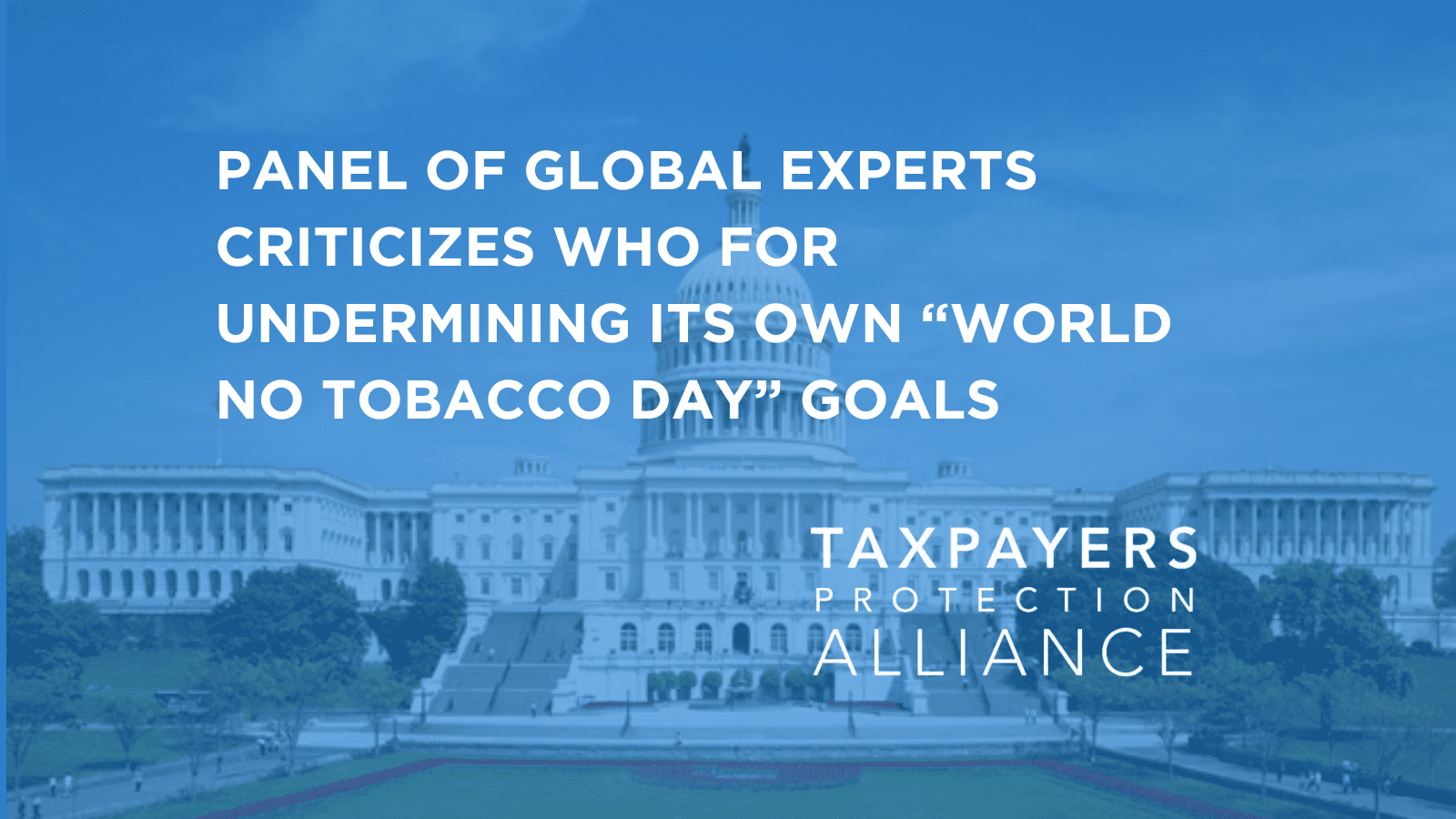
Panel of Global Experts Criticizes WHO for Undermining Its Own “World No Tobacco Day” Goals
Taxpayers Protection Alliance
May 28, 2025
FOR IMMEDIATE RELEASE
Contact: Kara Zupkus
WASHINGTON, D.C. – A global panel of tobacco harm reduction advocates and experts convened in a webinar to discuss why the World Health Organization (WHO) and the Secretariat of the Framework Convention on Tobacco Control (FCTC) are undermining efforts towards their own World No Tobacco Day. The discussion highlighted growing frustration with the WHO’s refusal to embrace tobacco harm reduction strategies despite compelling evidence of their life-saving potential.
Participants from Australia, South Africa, and the United Kingdom issued a stark warning that the WHO’s rigid, prohibitionist approach is not only failing to reduce smoking, it may be contributing to unnecessary deaths and the growth of dangerous black markets.
Martin Cullip, an International Fellow at the Taxpayers Protection Alliance, noted that the WHO’s focus appears skewed away from the populations most at risk. “The WHO dismisses adult smokers and vapers as inconsequential, despite the fact that there are many times more of them than youth. The burden of harms is overwhelmingly among adults who smoke, but the WHO seems not to be interested in that. It’s celebrating prohibition of products that aren’t even made from tobacco—it’s a strange approach towards World No Tobacco Day.”
Pippa Starr, founder of A.L.I.V.E. (Australia, Let’s Improve Vaping Education), described how Australia is suffering under policies aligned with WHO recommendations. “The WHO’s favoured policies have opened up a massive black market in Australia, where 66 people die every day from smoking-related diseases. The WHO should be doing something about that—but instead, it is rewarding countries which are making the situation worse.”
Kurt Yeo, co-founder of South African consumer association Vaping Saved My Life (VSML), argued that the WHO’s strategy lacks grounding in reality. “WHO messages are scripted,” he said. “It is making no real effort on the ground to move towards a smoke-free future. It should consider the full range of tools which are effective. Prohibition is not the answer, as we’ve seen in countries like Mexico, India, and Singapore. The WHO is not focusing on the right issues—it has lost reality and doesn’t care.”
Reem Ibrahim, Communications Manager at the Institute of Economic Affairs (IEA) in the UK, criticised the WHO for ignoring evidence. “We’ve seen that harm reduction products are very effective tools to help people quit smoking,” she said. “But this is the complete antithesis of the approach by the WHO. Instead, the WHO is actively preventing people from quitting smoking and saving their lives.”
The panel emphasised the contradiction at the heart of the WHO’s position: while its stated mission is to reduce tobacco-related deaths, it consistently opposes harm reduction tools like vaping and nicotine pouches—products that are helping millions quit smoking around the world.
The panel called on the WHO and FCTC Secretariat to modernise their approach by acknowledging the growing body of evidence in favour of harm reduction, and by engaging with consumers and health advocates who are working to end the global smoking epidemic through innovation and choice.
To request interviews with a harm reduction expert, contact Kara Zupkus at kara@protectingtaxpayers.org
